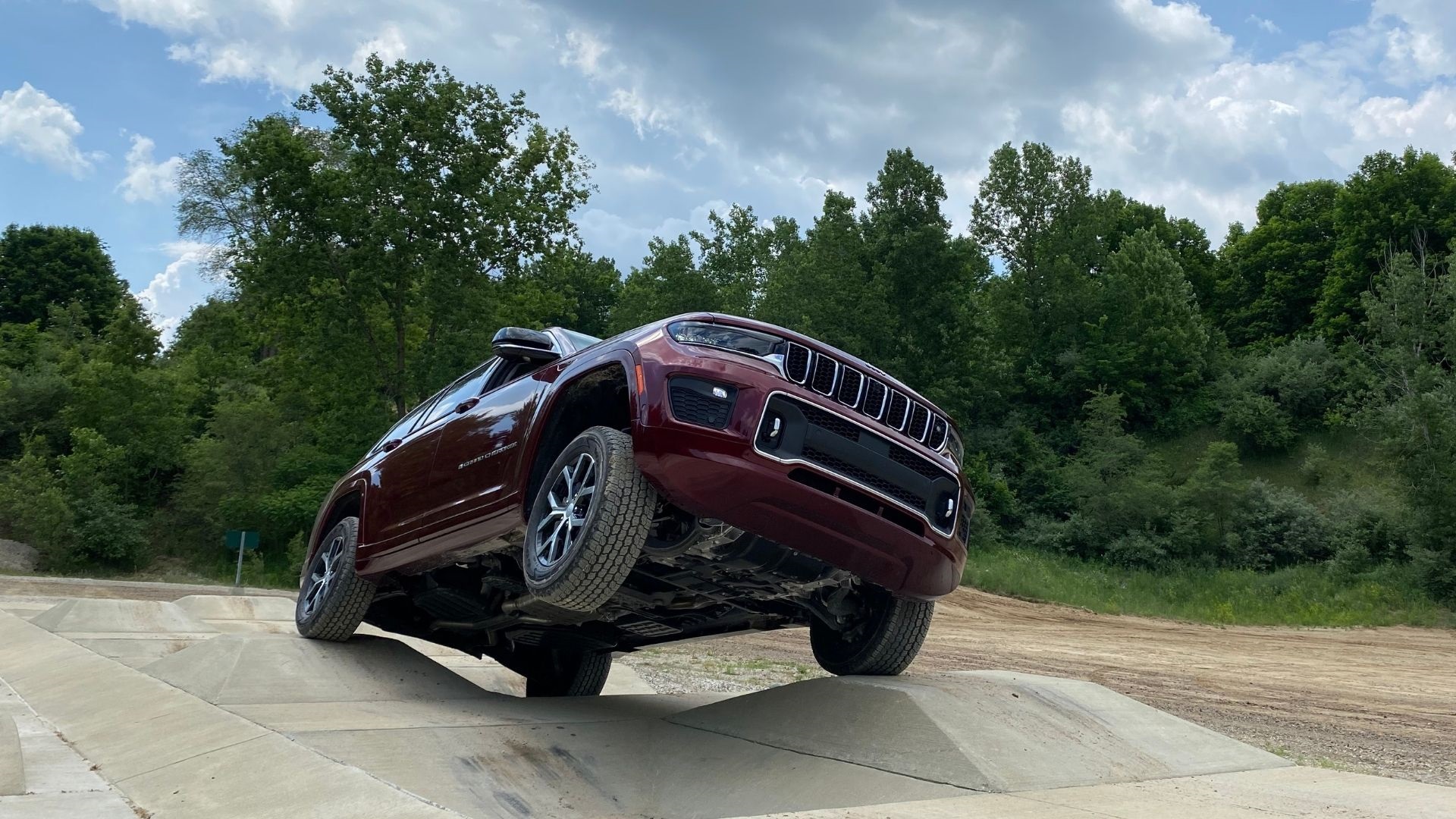

We may earn revenue from the products available on this page and participate in affiliate programs. Learn more ›
Carrying families since the early 90s, the Jeep Grand Cherokee has always been a two-row SUV. The new Jeep Grand Cherokee L is here, and not only is it the first Grand Cherokee model to offer a third row in the back, it has had a full makeover. It’s still a unibody and it’s still sporting an aluminum hood, but there’s a whole lot that is different for the newest iteration of this American icon.
Behind the fascia and comfort is a plethora of engineering tweaks that enable it to clamber up a steep rocky grade or down into a water crossing. One significant piece of that puzzle is an all-new multi-link front and rear suspension system with a virtual ball joint.

Recently, I put the all-new Jeep Grand Cherokee L through its paces at the brand’s Chelsea Proving Grounds near Detroit, Michigan. The course set up for the purpose was challenging enough to impress, and the front camera made a big difference when reaching the summit of a hill and the SUV’s nose was pointed to the sky. Overall, the ride was both nimble and luxurious, a combination you don’t get in a Wrangler or Gladiator.
Lead engineer Tom Seel told the media group at the launch that there was quite a bit of pressure in reengineering this icon, and they wanted to “honor the seven slots”. The Jeep Grand Cherokee L has been re-built from the ground up on a new WL chassis to replace the outgoing WK2; the WL is 15.1 inches longer and sits on a wheelbase that has seven more inches on it in order to accommodate three rows. The whole project was no small challenge, including the engineering updates.

For the first time on a Grand Cherokee, the front axle is bolted directly to the engine to save weight and improve its vehicle dynamics. A new multi-link suspension in front and rear has been updated with mission-specific ball joints, which Chief Engineer for the Jeep Cherokee L Fil Grado says was a no-brainer.
Ball joints play an important role in the Grand Cherokee L’s steering and suspension, connecting the steering knuckles to the short and long control arms. Each link is focused on either handling or comfort, eliminating the need to share conflicting requirements; the decoupling of the handling and comfort link function improves overall isolation and steering performance. Even if you’re not mechanically inclined, seeing a bad ball joint job like the one we heard about in Australia (which was cobbled together with wire and zip ties) you’ll understand how critical this component is for a safe and comfortable ride.

With the Jeep Grand Cherokee L‘s new setup, the ball joint was moved to a virtual point In the past, the pivot point was inside the vehicle, between the wheels. Placing the virtual ball outside the wheels gives the vehicle more lateral stability.
“By moving the virtual ball more outboard, the vehicle is less sensitive to varying road inputs and vibrations to the driver, also providing additional stability and on center steering performance,” Grado says.
After spending some time with the new Jeep Grand Cherokee L both onroad and playing in the dirt, I can tell you that the edges have been smoothed out on this vehicle. In the popular three-row SUV segment, this update represents the seven slots quite well.
Got a tip? Send the writer a note: kristin.shaw@thedrive.com
